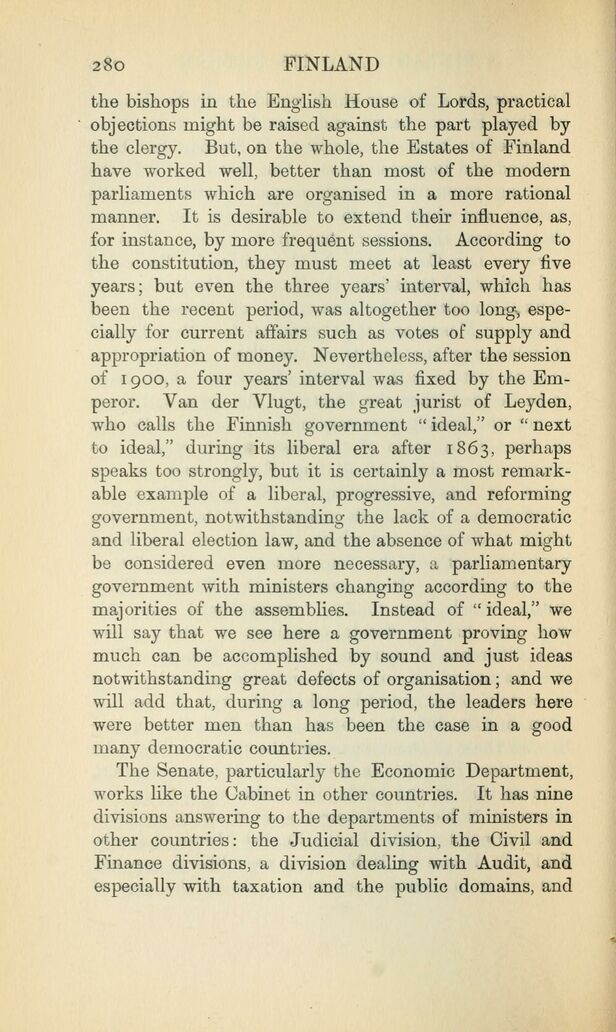
Full resolution (JPEG) - On this page / på denna sida - XI. The Government of Finland and its Future

<< prev. page << föreg. sida << >> nästa sida >> next page >>
Below is the raw OCR text
from the above scanned image.
Do you see an error? Proofread the page now!
Här nedan syns maskintolkade texten från faksimilbilden ovan.
Ser du något fel? Korrekturläs sidan nu!
This page has been proofread at least once.
(diff)
(history)
Denna sida har korrekturlästs minst en gång.
(skillnad)
(historik)
the bishops in the English House of Lords, practical
objections might be raised against the part played by
the clergy. But, on the whole, the Estates of Finland
have worked well, better than most of the modern
parliaments which are organised in a more rational
manner. It is desirable to extend their influence, as,
for instance, by more frequent sessions. According to
the constitution, they must meet at least every five
years; but even the three years’ interval, which has
been the recent period, was altogether too long,
especially for current affairs such as votes of supply and
appropriation of money. Nevertheless, after the session
of 1900, a four years’ interval was fixed by the
Emperor. Van der Vlugt, the great jurist of Leyden,
who calls the Finnish government “ideal,” or “next
to ideal,” during its liberal era after 1863, perhaps
speaks too strongly, but it is certainly a most
remarkable example of a liberal, progressive, and reforming
government, notwithstanding the lack of a democratic
and liberal election law, and the absence of what might
be considered even more necessary, a parliamentary
government with ministers changing according to the
majorities of the assemblies. Instead of “ideal,” we
will say that we see here a government proving how
much can be accomplished by sound and just ideas
notwithstanding great defects of organisation; and we
will add that, during a long period, the leaders here
were better men than has been the case in a good
many democratic countries.
The Senate, particularly the Economic Department,
works like the Cabinet in other countries. It has nine
divisions answering to the departments of ministers in
other countries: the Judicial division, the Civil and
Finance divisions, a division dealing with Audit, and
especially with taxation and the public domains, and
<< prev. page << föreg. sida << >> nästa sida >> next page >>